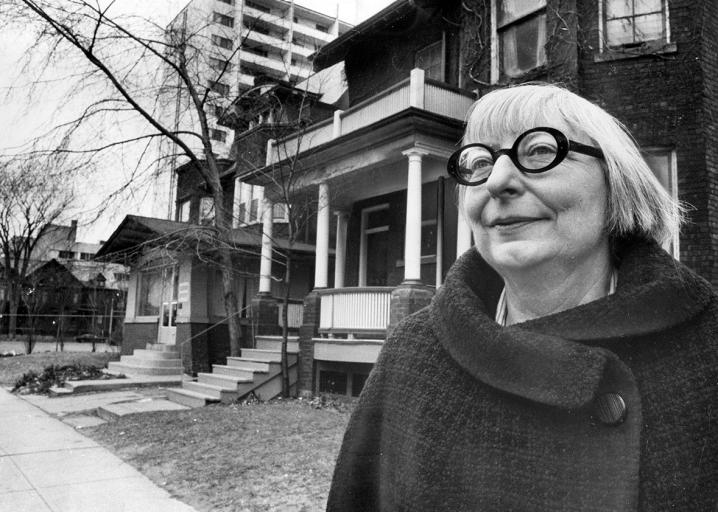 Jane Jacobs died last week. I did not always agree with her ideas, but I always had tremendous respect for her intellect and integrity. She was among the century’s most brilliant and original thinkers, and her presence alone made my city of Toronto an important intellectual center.
Jane Jacobs died last week. I did not always agree with her ideas, but I always had tremendous respect for her intellect and integrity. She was among the century’s most brilliant and original thinkers, and her presence alone made my city of Toronto an important intellectual center.
She was born in 1916, in Scranton Pennsylvania. Her first, and best-known book, The Death and Life of Great American Cities, was published while she still lived in New York City. It revolutionized thinking about urban planning and the nature of city neighbourhoods. But her subsequent books are equally important. They logically moved from the small scale questions she began to ask, such as “why is one street popular and safe, and another shunned and dangerous?”, through progressively larger issues of macro-economics, and finally to unexplored areas of ethics. She moved to Toronto, with her architect husband, in 1969, largely because of her opposition to the Vietnam War. Once in Toronto, she quickly became a public figure, spearheading opposition to urban policies that had already crippled many American cities. Thanks to her influence, Toronto avoided many of these disasters. Like any truly good thinker, she managed to be arrested at least twice, but she was never an enthusiast for the poses and pretenses of the professional “activist”. What she was good at was looking at the real world without the filter of ideological orthodoxy, and then writing down her common-sense conclusions with in a clear, simple style, more akin to the work of Montaigne than to the obscurantist fashions of her time. So it didn’t surprise me when I learned that, as a lonely child, she amused herself by carrying on imaginary conversations with Thomas Jefferson, Benjamin Franklin, and an Anglo-Saxon chieftain named Cerdric.
I first read her work when I was a teenager. One sentence of hers had a profound impact: “There is a quality even meaner than outright ugliness or disorder, and this meaner quality is the dishonest mask of pretended order, achieved by ignoring or suppressing the real order that is struggling to exist and to be served.” Remembering this sentenced saved me many times from being taken in by the waves of fake “rationalism”, pseudo-science, and mysticism masquerading as reason, that characterized the century I grew up in. John Sewell, the mayor of Toronto who actually took her ideas seriously, did not waste time explaining her writings, or their meaning. Instead, he spoke of her as a charming dinner companion, addicted to sweets (especially butter tarts), and relentlessly curious and questioning. Sewell was eventually ousted by an alliance of developers, corrupt police, and sleazy politicians, but in his term in office, Toronto blossomed, while other North American cities sank into decay and chaos. Many credit this positive era to her influence. The sad thing is that Jane’s struggle will go on in a new form. In all likelihood, her ideas will be oversimplified and grotesquely distorted, and used by some future generation to do harm. That is the most horrible thing about being an original thinker.
0 Comments.